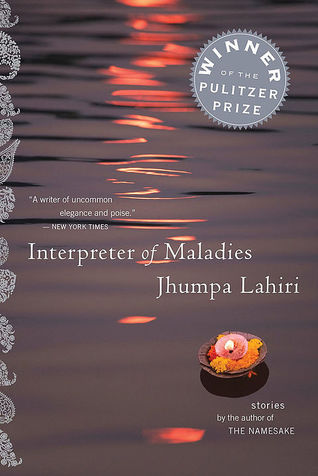 Written by Lauryn Smith Jhumpa Lahiri is one of the most talented writers I have ever had the pleasure of reading. I have now read her book of fictional short stories “Interpreter of Maladies” three times, and the latest instance has only reinforced my admiration. Lahiri’s writing is beautiful and effortless. Crafting a short story is no easy feat, yet each within the “Interpreter of Maladies” collection is stunning. The title story involves the Das family, composed of a first-generation American couple of Indian descent and three young children, as they tour India. Lahiri tells the story from the perspective of Mr. Kapasi, the family’s local tour guide and driver. It is soon revealed to the family that Mr. Kapasi also works as an interpreter for a physician who does not speak his patient’s languages. As he is able to speak many of the languages of India, Mr. Kapasi translates people’s woes for them, a skill for which Mrs. Das deems him an “interpreter of maladies.” Something about the Das family captivates Mr. Kapasi. He finds Mrs. Das particularly enamoring, partly due to of the special attention she pays him relative to her husband and children. Yet as she continues to romanticize Mr. Kapasi's role of medical confidant, she begins to reveal her own unexpected confidences, and for Mr. Kapasi, the situation turns sour. In addition to being a story full of profound eternal truths, such as the potentially terrible weight of a secret on a person, it is one of intricately weaved relationships between complex characters. Within a short number of pages, Lahiri successfully articulates characters that are multifaceted, dynamic and wholly original. Her prose in general is on point—simple yet rich.
Perhaps one of the most refreshing aspects of Lahiri’s story is its conclusion, which is characteristically mellow and poignant. The resolution is no less satisfying for its subtlety, either. In fact, it is almost more so. The evenness with which the story concludes facilitates deep reflection and a sense of fulfillment. The story is one that sticks with you, not one that is unoriginal and thus easily forgotten. It has been said that Lahiri’s story is depressing and can make readers feel uneasy. But that is exactly the point. The truth is presented as is, raw and unsweetened. When it comes to "Interpreter of Maladies," it cannot be denied that the balance between its being interesting, humbling and significant is impeccable. Lahiri, also author of the novel “The Namesake,” proves in “Interpreter of Maladies,” her debut collection, that she excels at illustrating the complexities inherent to being part of two cultures, namely Indian and American. It is no wonder. Of Indian decent herself, Lahiri was born in London and brought to America as a child, so she likely has a deep understanding of the themes on which she writes. By breathing genuine life into the distinctive characters she conjures, Lahiri effectively relates to all readers how life differs between India and the “New World,” as well as the myriad emotional processes associated with bridging the two. In the end, Lahiri demonstrates unanimous concepts of foreignness, whether within culture, country, peer groups, even family. While some critics say that the “Indianness” has been toned down in “Interpreter of Maladies,” it can be argued that the end product is more globally appealing. The resulting universality, whether intentional or not, helps get across concepts that may be difficult to understand, particularly for audiences with no initial exposure. Lahiri circumvents this impediment in the most comprehensible, eloquent way possible. In fact, much of what Lahiri delves into in “Interpreter of Maladies” is familiar. I would comfortably recommend this collection to any avid reader, particularly one looking for an introduction to Indian culture. Immigration, romantic longings, deception, destitution, war and more—the collection contains elements with which anyone can connect. Title: Interpreter of Maladies Author: Jhumpa Lahiri Publisher: Houghton Mifflin Harcourt Publication date: May 22, 2000 Page count: 198 List price: $14.95 ISBN: 978-0395927205 Awards: 2000 Pulitzer Prize for Fiction; 2000 PEN/Hemingway Foundation Award; 2001 Puddly Award for Short Stories
0 Comments
Your comment will be posted after it is approved.
Leave a Reply. |

Enjoying my book reviews? If you’ve found them helpful or simply love diving into a good book, consider supporting my caffeine-fueled reading sessions! Your contribution helps keep the reviews coming and ensures I stay wide awake for those late-night reading marathons. Cheers to a shared love for literature! ☕️
Categories
All
|
